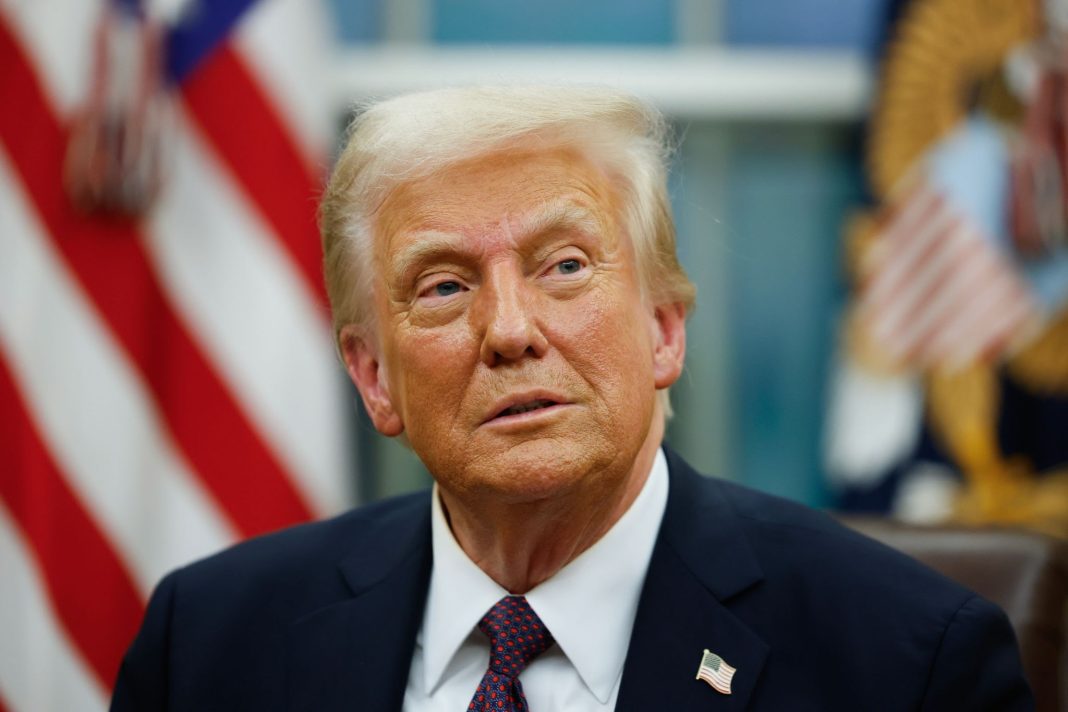Washington, D.C. — June 13, 2025
Former U.S. President Donald Trump has confirmed that his self-imposed 60-day deadline for Iran to reach a nuclear agreement has passed without a deal, raising new concerns about the direction of U.S.-Iran diplomacy. Speaking to CNN’s Dana Bash on Friday morning, Trump reiterated his earlier warning to Iran, first issued in a private letter to Supreme Leader Ayatollah Ali Khamenei earlier this year.
“I gave them a 60-day warning, and today is day 61,” Trump said, referencing the start of informal negotiations that began on April 12. “Iran should have listened. They should now come to the table to make a deal before it’s too late.”
📜 What Was the 60-Day Deadline?
In early 2025, former President Trump sent a diplomatic message to Iran’s leadership outlining a 60-day window for successful negotiations on curbing Iran’s nuclear ambitions and regional aggression. While the content of the letter was not made public at the time, Trump later confirmed in interviews that the letter warned of unspecified “military consequences” if progress was not made.
This timeline placed the deadline on June 11, 2025, the day before Israel launched Operation Rising Lion, a major military strike targeting key Iranian military and nuclear sites.
⚔️ Escalation After the Deadline
During his CNN interview, Trump claimed that Iran’s leadership had ignored the U.S. warnings and was now paying the price. He stopped short of admitting any direct American involvement in Israel’s strikes but suggested that recent events had altered the strategic landscape.
⚔️ Rising Lion Roars: Israel Launches First-Ever Coordinated Strike on Iran’s Nuclear Strongholds
“They didn’t die of the flu; they didn’t die of Covid,” Trump said, alluding to the deaths of senior Iranian officials in the Israeli assault, including IRGC commander Hossein Salami and military chief Mohammad Bagheri. “The hardliners I was dealing with are gone.”
When asked if Israel’s overnight strikes on Iran were coordinated with the U.S., Trump did not directly respond. However, Secretary of State Marco Rubio later clarified that “there was no U.S. military involvement or assistance in Israel’s operations.”
📉 Diplomatic Uncertainty Grows
U.S. officials involved in the indirect Iran talks had been aware of the 60-day marker and acknowledged increasing pressure to reach an agreement as the deadline neared. Despite the deadline’s expiration, American diplomats have indicated that dialogue is not entirely off the table.
“While the deadline is significant politically, our intention remains to continue engaging all parties toward a diplomatic resolution,” a senior State Department official told reporters off-record. “This week’s events, however, have complicated the landscape considerably.”
🇺🇸 Trump’s Policy Legacy and Current Strategy
President Trump’s Iran policy has consistently leaned toward “maximum pressure,” a strategy designed to coerce Tehran into halting its uranium enrichment program and missile development. The 60-day deadline was framed within this philosophy — signaling to Iran that time for diplomacy was running out.
Trump also indicated that any future negotiations would likely exclude current Iranian hardliners, stating, “The people I was dealing with are dead.”
This approach starkly contrasts with the Biden administration’s previous emphasis on multilateral diplomacy and gradual de-escalation, though some Republican leaders have supported a firmer stance.
Trump Threatens Iran with ‘Even More Brutal’ Attacks: “Make a Deal or Face Total Destruction”
🌍 Global Reactions to the Expired Deadline and Israel’s Strike
As Israel’s strike reverberates across the region, world leaders are now dealing with the aftermath of a simultaneous military and diplomatic breakdown. The European Union has called for calm and urged both Israel and Iran to resume diplomatic paths.
Meanwhile, Iran has vowed retaliation and described the assassinations of its top security leaders as “acts of war.”
“What happened yesterday is not just a military strike — it’s a strategic turning point,” said Dr. Leila Azari, a regional expert at the Atlantic Council. “Trump’s deadline may now be remembered not for its failure to produce a deal, but for what followed on day 61.”

